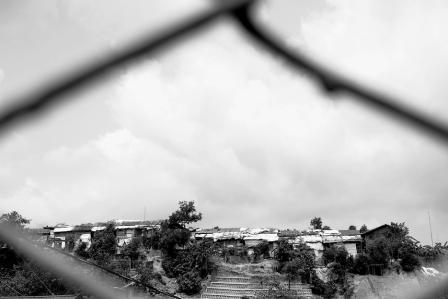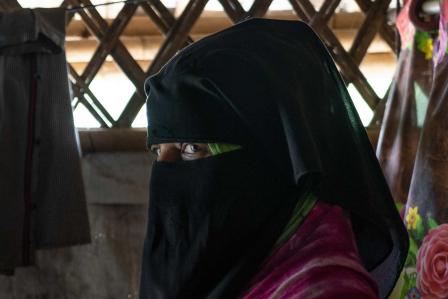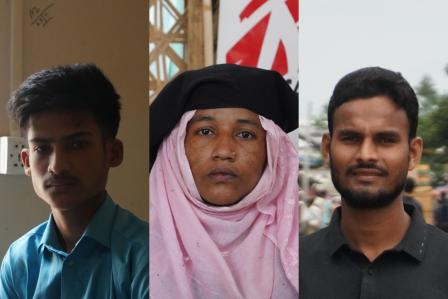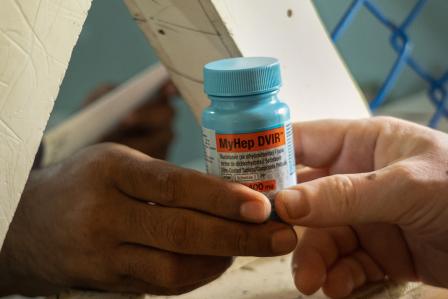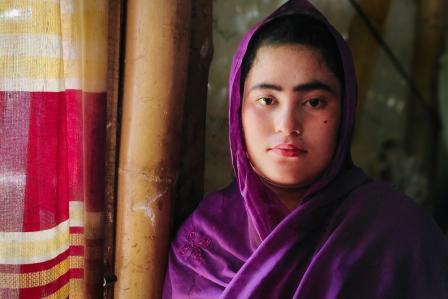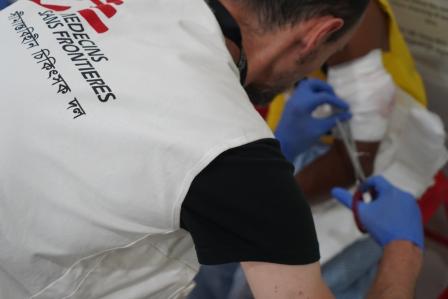Bangladesh: The needs are here and now
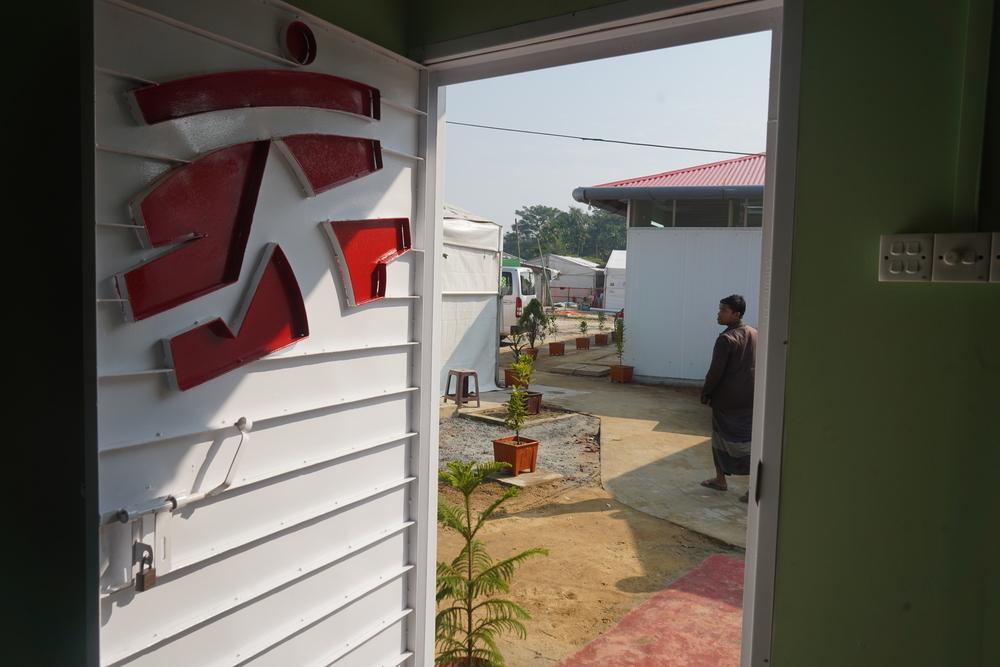
Doctors Without Borders is a major provider of medical care in the Cox’s Bazar region. The Balukhali clinic is one of the nine operating medical centers and two standby multi-outbreak centers Doctors Without Borders runs in the camp. © MSF/Jan Bohm
Two years ago, on March 22, 2021, a devastating fire swept through the world's largest refugee camp in Cox’s Bazar, Bangladesh. It killed 15, injured 560, and left 45,000 people without shelter. The fire also destroyed the Doctors Without Borders / Médecins Sans Frontières (MSF) clinic in Balukhali. However, just as day comes after night, good news follows the miserable ones.
Just one month following the blaze, Doctors Without Borders resumed critical medical services in temporary structures. The ongoing policy in the camp treats the crisis as temporary, so no permanent structures are allowed – for medical services, nor for the inhabitants of the camp. To rebuild the clinic, Doctors Without Borders worked hard to get the permits to be allowed to build semi-permanent structures. After two years, these permits were finally given, and construction started in January 2023. As people in many parts of the world celebrated Christmas, we celebrated the completion of the new clinic. On December 21, 2023, two and a half years after the devastating fire, Doctors Without Borders marked the reopening with a ceremony attended by the community, staff, and authorities.
“Patients travel from distant areas of the camp for the quality treatment we offer,” says Sarmin Akter, Project Coordinator Support, who has been with the facility since September 2017. “The fire severely impacted our service delivery. Nonetheless, patients continued to rely on us due to the trust we've built. Despite movement restrictions imposed on people even within the confines of the camp already, they chose our facility over closer alternatives to their shelters because of this trust.”
The Doctors Without Borders Balukhali clinic provides ambulatory services focusing on two main areas: sexual and reproductive health, including care for survivors of sexual and gender-based violence, and mental health services, including psychiatric care, and treatment for epilepsy. The clinic also serves as a hub for vaccination, health promotion, water and sanitation, as well as a base for our humanitarian affairs team working in nearby camps, which endeavors to uncover areas of humanitarian concern – for example when refugees are prohibited to access secondary health centres or are denied birth certificates for their babies.
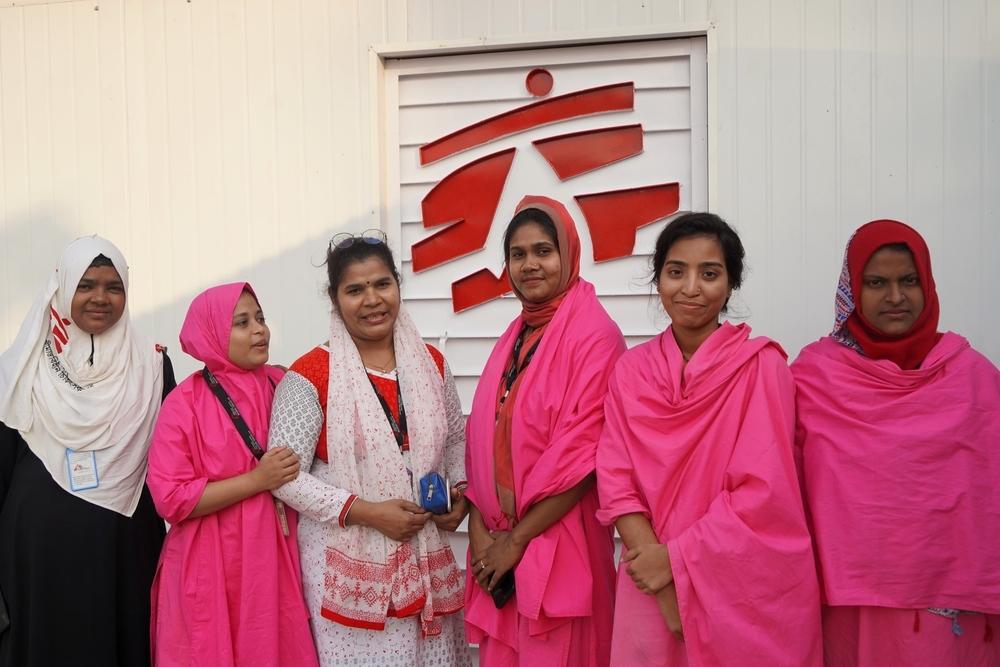
Sexual and reproductive healthcare team of the Doctors Without Borders Balukhali clinic. © MSF/Jan Bohm
Current policies are based on the assumption that the Rohingya will return to Myanmar, a prospect that for now remains elusive, as conditions for the safe and dignified return of Rohingya, where their rights are ensured, are just not there. But the needs are here and now.Antonino Caradonna, Head of Mission
“The challenges are growing, and international donor support is waning. It's crucial to keep the Rohingya crisis in the global consciousness to address the immediate and escalating needs of the Rohingya which we witness every day, and continuing in the same direction, until conditions are favorable for a return to Myanmar. Meaningful action must be taken to facilitate Rohingya to be self-sustainable and to live in safety and dignity.,states Antonino Caradonna, Doctors Without Borders Head of Mission in Bangladesh
Since 1978, Cox’s Bazar district has sheltered Rohingya refugees fleeing targeted violence in Myanmar’s Rakhine state. The latest and largest surge of violence starting in August 2017 resulted in hundreds of thousands of people fleeing across the border to Bangladesh. Together with refugees already displaced from previous violence, around one million Rohingya are now living in increasingly dire conditions.
Doctors Without Borders is a major provider of medical care in the Cox’s Bazar region, operating nine medical centers and two standby multi-outbreak centers. As prevention of diseases is more efficient than dealing with the consequences of outbreaks, Doctors Without Borders also manages several water networks and runs two fecal sludge treatment plants. Between January and November 2023, Doctors Without Borders teams provided 106,424 emergency consultations and 610,208 outpatient consultations. Health promotion activities reached 718,176 individuals. Every day, Doctors Without Borders medical teams treat approximately 2,200 patients.


